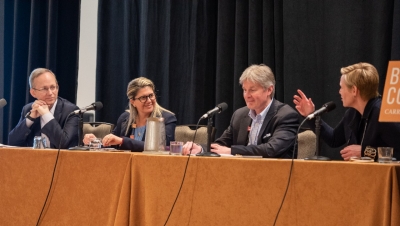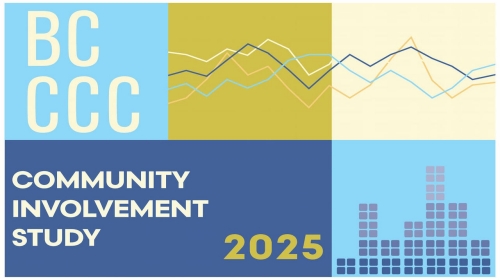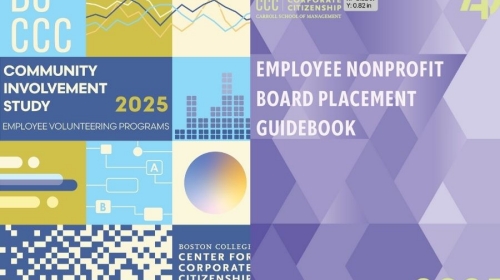WEBINAR: This webinar explores how to measure and communicate your organization's social impact with proven frameworks and strategies that matter to stakeholders.
Want to lead change? Be a positive disruptor

During the 2019 International Corporate Citizenship Conference, Barb Short, former chief diversity officer and President of the PSEG Foundation, led a discussion about what it takes to lead change with Martha Herrera, corporate director of social responsibility at CEMEX; Christopher Lloyd, director of corporate social responsibility at Verizon (retired); and David Steel, executive vice president at Samsung. What follows is an excerpt from their conversation. Register now for the 2020 conference.
According to our Profile of the Professionals 2018 research, among the challenges most likely to be reported by corporate citizenship professionals is leading initiatives that involve multiple departments. Corporate citizenship professionals can take the advice of the following leaders by building cross-departmental networks, establishing trust, being persistent, and taking the time to develop dialogue with stakeholders.
Short: As my manager once told me, “I do not want you to assimilate.” Corporate citizenship professionals have a responsibility to contest the status quo—to voice and elevate opportunities for action. Stay true to that aspect of your core job function, regardless of your specific situation or organizational context. Be flexible enough to get things done, but do not compromise on what matters. Leading with that inspiration can draw out the partners who you will need going forward.
Steel: As a corporate citizenship professional, you are best positioned to challenge the normal conversations and illuminate opportunities that would not be otherwise apparent (to others) in business operations. No matter where you sit in the organization, your role is to be a positive disruptor. You must challenge yourself to keep that pace of innovation in your citizenship activities—and share your successes widely, both inside and outside your company.
Herrera: I believe in continuous development, which is why I participate in workshops and seek partnerships to learn new trends, as well as create and innovate together with collaborators. Even if my role is purely corporate, I continue to implement local innovation practices to understand the evolving needs of the community, thus identifying new opportunities for shared value with those communities. By being in the field, I can listen to people working on the front lines and enhance our responsible business strategy from the bottom up.
Lloyd: In some cases, the work is most effective if it follows the path of least resistance. For your colleagues who do not think about citizenship on a day-to-day basis, you need to clarify the connection between social impact and organizational goals. When you introduce metrics and define stakeholders’ issues, you can start to build a case and create an opportunity to address, for instance, a marketing message. You can be an agent of change by helping connect the dots for people who may not otherwise be capable or inclined to do so.
Join us in San Francisco on March 30-April 1 for the 2020 International Corporate Citizenship Conference to participate in conversations like this one and more to learn best practices for leading change across your organization. Register today for the best rate.
Related Content
RESEARCH BRIEF - Researchers investigated how ESG activities help or hurt financial performance, using nine years of data from over 1,200 global companies.
RESEARCH BRIEF - Researchers analyzed 4 US energy exchange-traded funds (ETFs) over 15 years, including 2 dirty energy funds tracking fossil fuel companies and 2 clean energy funds tracking renewable energy companies.
RESEARCH BRIEF - Researchers conducted a survey, which measured perceptions of CSR and ethical leadership within the manufacturing and service industries.
WEBINAR: This webinar explores how corporate giving will be reshaped by the One Big Beautiful Bill. Hear directly from corporate citizenship leaders as they share innovative, real-world strategies that deliver impact for communities and results for business.
This study explores shifting trends in employee volunteering, corporate giving, and other means of corporate community involvement.
This guidebook offers insights on placing employees in nonprofit board service roles.
This study explores shifting trends in employee volunteering, corporate giving, and other means of corporate community involvement.








